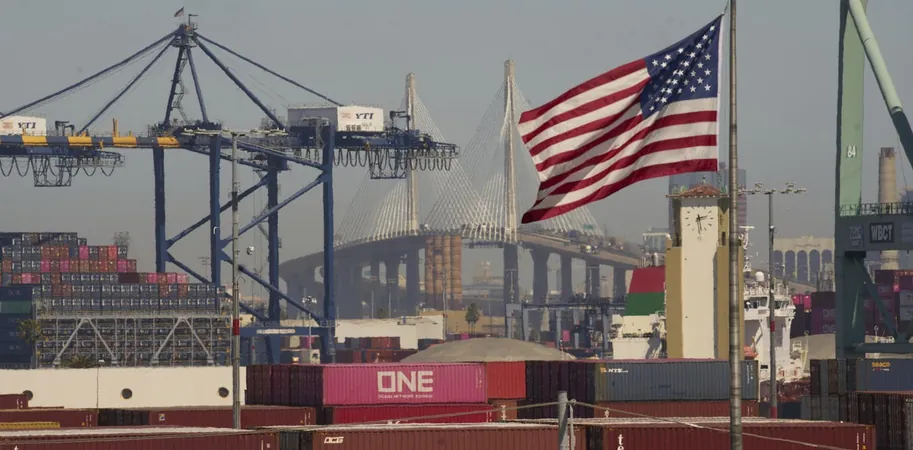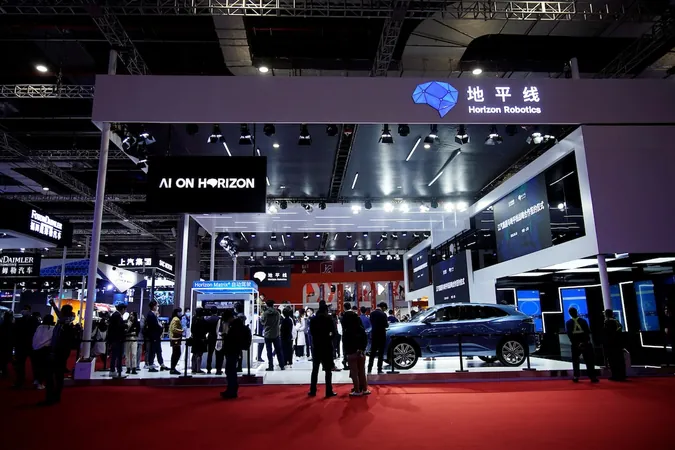
Is a New Era of Trade Protectionism Looming? The Impact of U.S. Tariffs
2025-04-13
Author: Michael
A Shocking Shift in Global Trade
President Trump’s tariffs are sending shockwaves through the global trading landscape. While Canadians are focused on the immediate effects on U.S.-Canada relations, the broader implications could be just as severe.
The Cascading Effects of Tariffs
Billions of dollars in exports originally destined for the U.S. are now preparing to flood international markets, including Canada. This shift signals the onset of a historic trade diversion, challenging even the staunchest advocates of free trade.
How Tariffs Have Changed the Game
In 2024, 15% of global imports flowed into the U.S., historically the largest consumer market due to its average tariffs of 3.3%. But those days are gone. On April 2, the U.S. raised its average tariff rate dramatically to 22%, the highest among major economies.
The Great Trade Diversion Unfolds
China, a massive player in global trade, saw exports to the U.S. reach $438.9 billion that year. Previously, low-value shipments were exempt from tariffs, but that changed with new policies eliminating this exemption and introducing a staggering reciprocal tariff of 34% on Chinese imports.
With retaliatory measures, the effective tariff rate soared past 100%, making it nearly impossible for Chinese goods to remain competitive in the U.S. This has triggered a redirection of goods, reminiscent of past trade tensions.
A Historical Parallel: The Smoot-Hawley Act
History offers a cautionary tale. The 1930s Smoot-Hawley Tariff Act, aimed at protecting American industries during the Great Depression, led to a swift contraction in global trade. As countries retaliated with their own tariffs, the world economy spiraled downward.
Modern Concerns Amidst Global Turmoil
Today, the landscape is equally fraught with tension. For nearly a decade, concerns over 'Chinese overcapacity' have led some nations to impose trade barriers. Canada, for example, has slapped a 100% tariff on Chinese electric vehicles to safeguard its emerging industry.
WTO Under Strain
The global trade framework is under unprecedented strain. With the U.S. blocking the appointment of judges to the World Trade Organization, countries feel increasingly empowered to ignore established rules. This emboldens nations like Indonesia to enact restrictions that flout global trading standards.
The Future of Global Trade: A Broken System or Collective Recovery?
The looming trade diversion presents both challenges and opportunities. There's still time for countries to recommit to international trade rules. The Canadian government, for instance, can proactively identify vulnerable sectors to impose temporary trade restrictions and navigate this storm.
The world economy stands at a critical juncture: will we reinforce global cooperation, or descend into a spiral of protectionist measures? The decisions made now could shape the future of international trade for decades.









 Brasil (PT)
Brasil (PT)
 Canada (EN)
Canada (EN)
 Chile (ES)
Chile (ES)
 Česko (CS)
Česko (CS)
 대한민국 (KO)
대한민국 (KO)
 España (ES)
España (ES)
 France (FR)
France (FR)
 Hong Kong (EN)
Hong Kong (EN)
 Italia (IT)
Italia (IT)
 日本 (JA)
日本 (JA)
 Magyarország (HU)
Magyarország (HU)
 Norge (NO)
Norge (NO)
 Polska (PL)
Polska (PL)
 Schweiz (DE)
Schweiz (DE)
 Singapore (EN)
Singapore (EN)
 Sverige (SV)
Sverige (SV)
 Suomi (FI)
Suomi (FI)
 Türkiye (TR)
Türkiye (TR)
 الإمارات العربية المتحدة (AR)
الإمارات العربية المتحدة (AR)